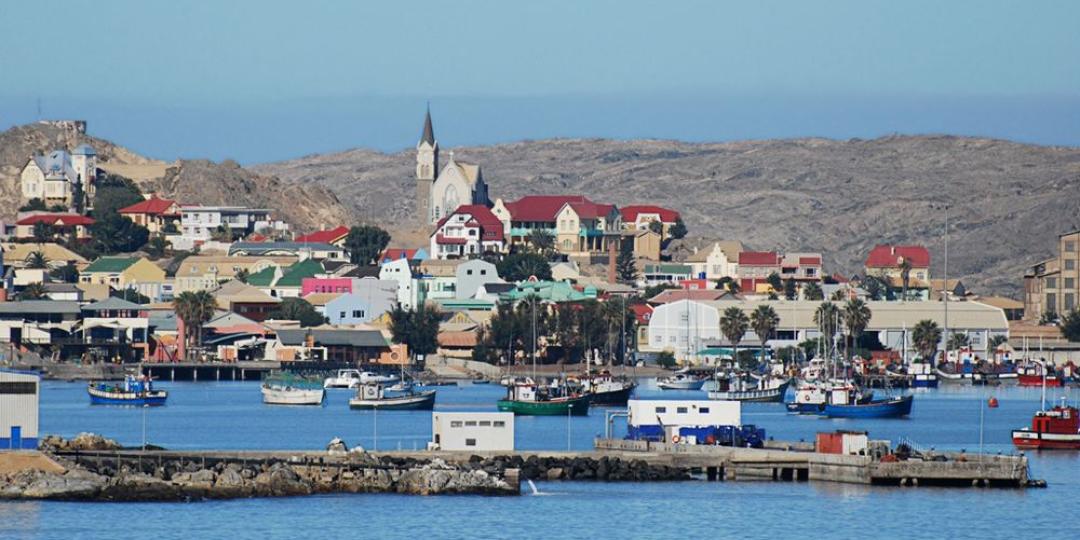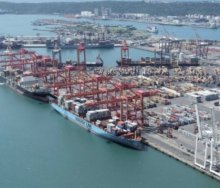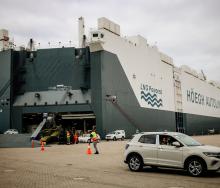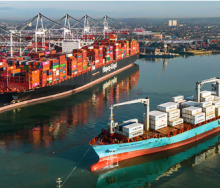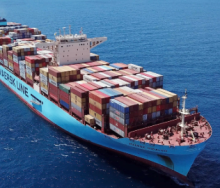Questions are being raised why it is that an ocean freight feeder service for the Port of Lüderitz has been cancelled, without any alternative measures being implemented to sustain the transhipping of cargo further north to Namibia’s primary export port of Walvis Bay.
This comes after Ocean Africa Container Lines (OACL) announced that it would be discontinuing the service due to rising vessel charter rates and spiking fuel costs.
In addition, Maersk, which used to send vessels to Lüderitz until OACL introduced its feeder service some ten years ago, has said that it will not be implementing a sailing solution for the port.
Instead, it will be trucking export cargo from Lüderitz to Walvis Bay, going all the way around Windhoek.
Willie Prosser of the Walvis Bay Port Users’ Association, said it simply didn’t make sense to do this to shippers and their agents, expecting their cargo to go by road from the one port to the other - more than 1200kms apart - when by sea the ports were about 470km apart.
The association’s chair, who also runs a logistical concern called Novaship Namibia, explained that the cost implications for cold-chain cargo not to go out via Lüderitz any more, would force exporters of frozen fish from the south to reconsider whether it was worth it any more.
Reacting to Maersk’s decision, Prosser said it was unacceptable what was happening at the moment.
“If you withdraw a service, you are leaving your clients high and dry. Instead, you are offering a road service that is not sustainable. It’s a short-term solution.
“What we have here is Maersk having a slot arrangement with OACL to service their clientele. So they have a responsibility to continue servicing their clientele.”
Prosser added that it was understandable that the Danish-run carrier had a business model focusing on bigger vessels that couldn’t call at Lüderitz, and that smaller vessels, which were increasingly being retired from service, were supposedly no longer part of Maersk’s strategy.
However, he said he found it strange that a leading line could not come up with a better alternative.
“With all their experience, I’m not going to be told there is no solution.”
Prosser furthermore said he didn’t believe that Maersk, which had been talking about a possible logistics joint venture (JV) with Sturrock Grindrod Maritime (SGM), majority shareholders of OACL, didn’t know about developments involving the feeder service.
He explained that OACL must have known for some time that it wouldn’t be rechartering the necessary vessels for the Lüderitz feeder service.
Therefore, it doesn’t seem to make sense that Maersk and SGM would be involved in JV discussions related to logistics in Lüderitz, when OACL is pulling out of the port’s container businesses.
· Freight News approached all three of the commercial enterprises mentioned in this report for comment. A communications representative from Grindrod asked for more time, especially given the demanding situation that has unfolded in KwaZulu-Natal due to the impact of disastrous weather on logistics at the Port of Durban.
